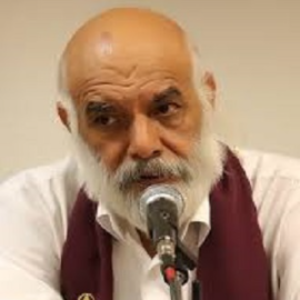Title : Molecular insights into addiction treatment and recovery: The dezhakam-step-time protocol and the power of genomics
Abstract:
Understanding and treating addiction requires a comprehensive view of the underlying neurobiological changes that occur throughout an individual's journey. This presentation highlights how advanced genomic and epigenetic techniques are critical for providing a whole picture of gene expression patterns from pre-addiction vulnerability, during active substance use, through treatment interventions, and into sustained recovery. This molecular perspective is essential for developing truly personalized and effective addiction therapeutics.
We present compelling clinical evidence from the Dezhakam-step-time (DST) method, a unique taper up-off opium tincture protocol successfully implemented for over two decades. For opium addiction, the 12-month DST protocol has demonstrated remarkable efficacy, with less than a 10% relapse rate over five years—one of the lowest reported globally—accompanied by significant improvements in cognitive functions. Furthermore, for methamphetamine dependence, a disorder notoriously lacking pharmacotherapies, the DST method shows exceptional promise, achieving an 89% success rate and an 11% relapse rate in a two-year follow-up.
These robust clinical outcomes underscore the DST method's capacity to facilitate profound neurobiological readjustment. We propose that by examining gene expression and epigenetic modifications before treatment initiation, throughout the DST tapering process, and during long-term recovery, we can unravel the molecular mechanisms driving this sustained remission. Such analyses can reveal how the method normalizes reward circuitry, stress responses, and cognitive function. This genomic approach enables the identification of biomarkers for treatment response, relapse prediction, and the objective monitoring of true brain health and sustained well-being in individuals transitioning from dependence to lasting recovery. Our findings advocate for integrating precision genomics to redefine and optimize future addiction treatment strategies.



